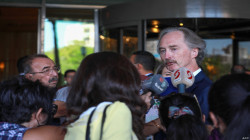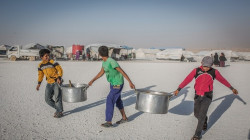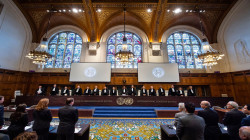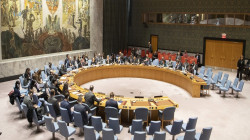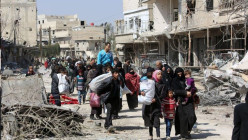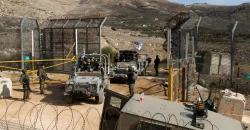UN approves 1-year extension of aid from Turkey to Syria
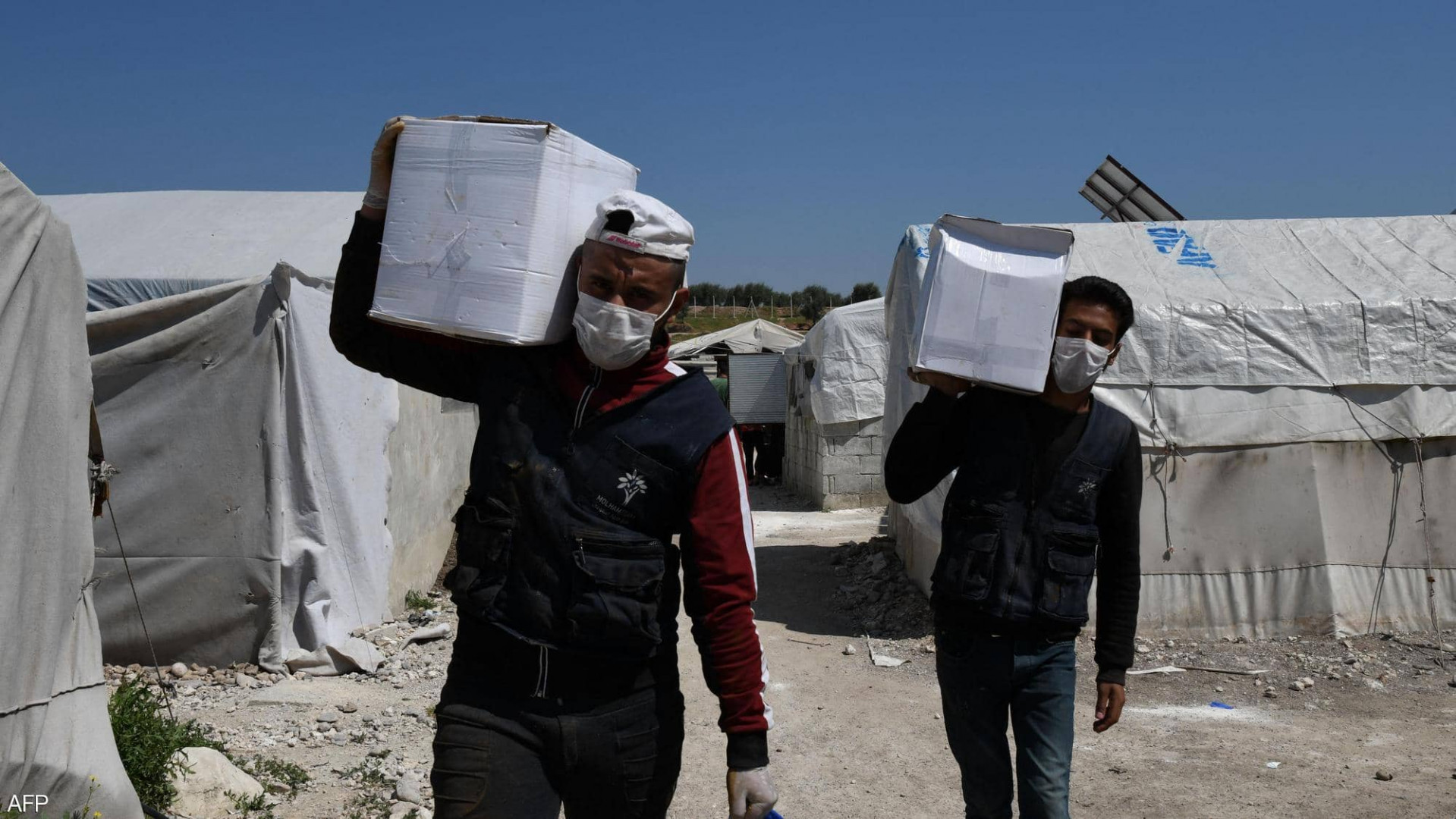
Shafaq News / The U.N. Security Council voted unanimously Friday to extend the delivery of humanitarian aid from Turkey to rebel-held northwest Syria for a year after a U.S.-Russia deal, a move the U.N. says will provide lifesaving aid to 3.4 million people are in desperate need of food and other assistance.
The key issue had been whether the council should authorize deliveries through the Bab al-Hawa crossing to northwest Idlib for another year, which the West, U.N. and humanitarian groups said was critical — or for six months as Russia, Syria’s closest ally, had insisted on. The current one-year mandate for aid through Bab al-Hawa expires on Saturday.
The resolution authorizes aid deliveries through Bab al-Hawa for six months until Jan. 10, 2022, with an automatic extension for another six months until Jan. 10, 2022, subject to U.N. Secretary-General Antonio Guterres issuing a report on the “transparency” of the aid operation and progress on delivering aid across conflict lines within Syria as Russia wanted.
U.S. Ambassador Linda Thomas-Greenfield told the council after the vote: “Thanks to this resolution, millions of Syrians can breathe a sigh of relief tonight knowing that vital humanitarian aid will continue to flow into Idlib through the Bab al-Hawa border crossing after tomorrow, and parents can sleep tonight knowing that for the next 12 months their children will be fed.”
“The humanitarian agreement we’ve reached here will literally save lives,” she said.
Russia’s U.N. Ambassador Vassily Nebenzia called the resolution “a milestone on the path to resolving the Syrian crisis and overcoming its consequences” and said he was grateful to the Americans and all council members for reaching agreement “in spite of all the difficulties and problems.”
“The members of the council have given the green light for the cross-border mechanism to be enhanced gradually and then eventually be replaced by cross-line deliveries,” he said. “For the first time it addresses the need to improve cross-line deliveries.”
Nebenzia said council members are also united “in that humanitarian activities should also satisfy such acute needs of the Syrian population as water supply, health care and education.”
The resolution calls on the U.N.’s 193 member nations “to respond with practical steps to address the urgent needs of the Syrian people in light of the profound socioeconomics and humanitarian impact of the COVID-19 pandemic on Syria, as a country in situation of complex humanitarian emergency.”
It also welcomes “all efforts and initiatives to broaden the humanitarian activities in Syria, including water, sanitation, health, education, and shelter" as well as early recovery projects.
The issue of aid to northwest Idlib has been a top priority for the U.S. administration and President Joe Biden raised it at his summit last month with Russian President Vladimir Putin. Nebenzia and Thomas-Greenfield both stressed the importance of the deal they reached for future U.S.-Russian relations.
The council vote on the rival Western and Russian draft resolutions was delayed initially by a meeting between Thomas-Greenfield and Nebenzia.
Ireland and Norway, who drafted the Western-backed resolution seeking a one-year extension, and Russia, who circulated a draft for a six-month extension, both withdrew their resolutions following that meeting. Then, all 15 members of the Security Council met together and agreed on the compromise resolution that was unanimously approved.
Russia’s draft resolution, circulated Thursday, would have authorized a six-month extension “with the anticipation of renewal” subject to a report from Guterres on “transparency” in aid deliveries and progress on sending aid directly across conflict lines within Syria. It would have required another Security Council vote when the six-month extension expired on Jan. 10, but the resolution approved Friday will not require another vote.
Nebenzia told the Security Council two weeks ago that aid moving across conflict lines “is the only legitimate option for a humanitarian operation" and he accused Western nations of wasting the past year that could have been used “to find a seamless and constructive solution and an optimal balance of Idlib’s procurement through both Bab al-Hawa and domestic channels.”
Nebenzia also claimed the humanitarian operation wasn't transparent and that some aid was going to Hayat Tahrir al-Sham, the strongest militant group in Idlib, and not to needy Syrians.
He told reporters Thursday that “12 months doesn’t fly” because nothing had happened in the past year, especially on cross-line deliveries.
Western nations, the U.N. and humanitarian organizations had argued that a year’s extension was essential to ensure the flow of aid, while six months would require another vote in January and could potentially leave millions of Syrians without aid in the middle of winter.
The Security Council approved four border crossings when aid deliveries began in 2014, three years after the start of the Syrian conflict. But in January 2020, Russia used its veto threat in the council first to limit aid deliveries to two border crossings in the northwest, and then last July to cut the crossings to just Bab al-Hawa.
Ireland and Norway initially proposed to also reopen the Al-Yaroubiya border crossing from Iraq to Syria’s mainly Kurdish-controlled northeast. But last week, Nebenzia called that idea “a non-starter,” so Norway and Ireland revised their proposal to just keeping the Bab al-Hawa crossing open.
Acting U.N. humanitarian chief Ramesh Rajasingham told the Security Council in late June that a failure to extend the mandate for Bab al-Hawa “would disrupt lifesaving aid to 3.4 million people in need across the northwest, millions of whom are among the most vulnerable in Syria.”
Source: ABC News
